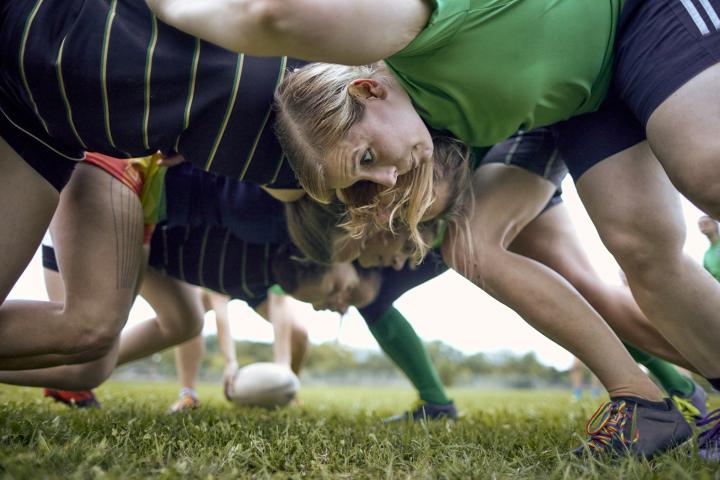Injury prevention measures designed to boost male rugby players’ resilience are to be reassessed so they can better support the women’s game.

Sports medicine experts hope to fine tune the Activate programme – adopted by rugby union’s ruling body – to help female players avoid injury and recuperate more quickly.
Researchers are mapping the frequency and seriousness of injuries – including concussion – that occur in women’s matches and training sessions in teams across Scotland, England, and Wales.
During the two-year study funded by World Rugby, the team will implement, evaluate and adapt the Activate programme specifically to women players.
Injury rates
Researchers from the Universities of Edinburgh and Bath and Cardiff Metropolitan University will seek to reduce the rate of injuries, and their impact on players.
Activate’s exercise regimes, which are used in training and pre-match, are designed to improve strength, balance and agility and to help players meet rugby’s physical demands.
Programme users say the regimes boost performance, reduce the risk of injury and support rehabilitation – but its effectiveness varies according to the level of play, age and gender.
Activate has, for instance, helped reduce lower limb injuries and concussion at men’s senior community level. It has also had an impact on injury and concussion rates in boys rugby.
Fresh approach
Despite these successes, the study team says Activate tends to follow a one-size-fits-all approach and is largely designed and tested in, groups of male players.
Differences in injury risk between men and women are well known. Rates and severity of concussion, for instance – and how players respond – varies widely, mainly because the cervical musculoskeletal and neuromuscular attributes of women and men differ.
It is also well established that anterior cruciate ligament (ACL) injury rates experienced by women and girls are three to six times the rate of men and boys. And, while annual ACL injury rates for males have decreased they have remained unchanged for females.
Edinburgh-based study team leader Debbie Palmer, of Moray House School of Education and Sport, is co-Director of the new Edinburgh – Bath IOC Research Centre.
Vital step
Dr Palmer believes the study is an important step in providing the evidence base for Activate’s effectiveness in different settings and for all rugby players.
“While injury risk differs between males and females; it is also likely that female athletes may respond to prevention initiatives differently,” says Dr Palmer.
“Hence it is important that injury prevention strategies are implemented and objectively evaluated in female cohorts, to reduce injuries and protect athlete health.”








